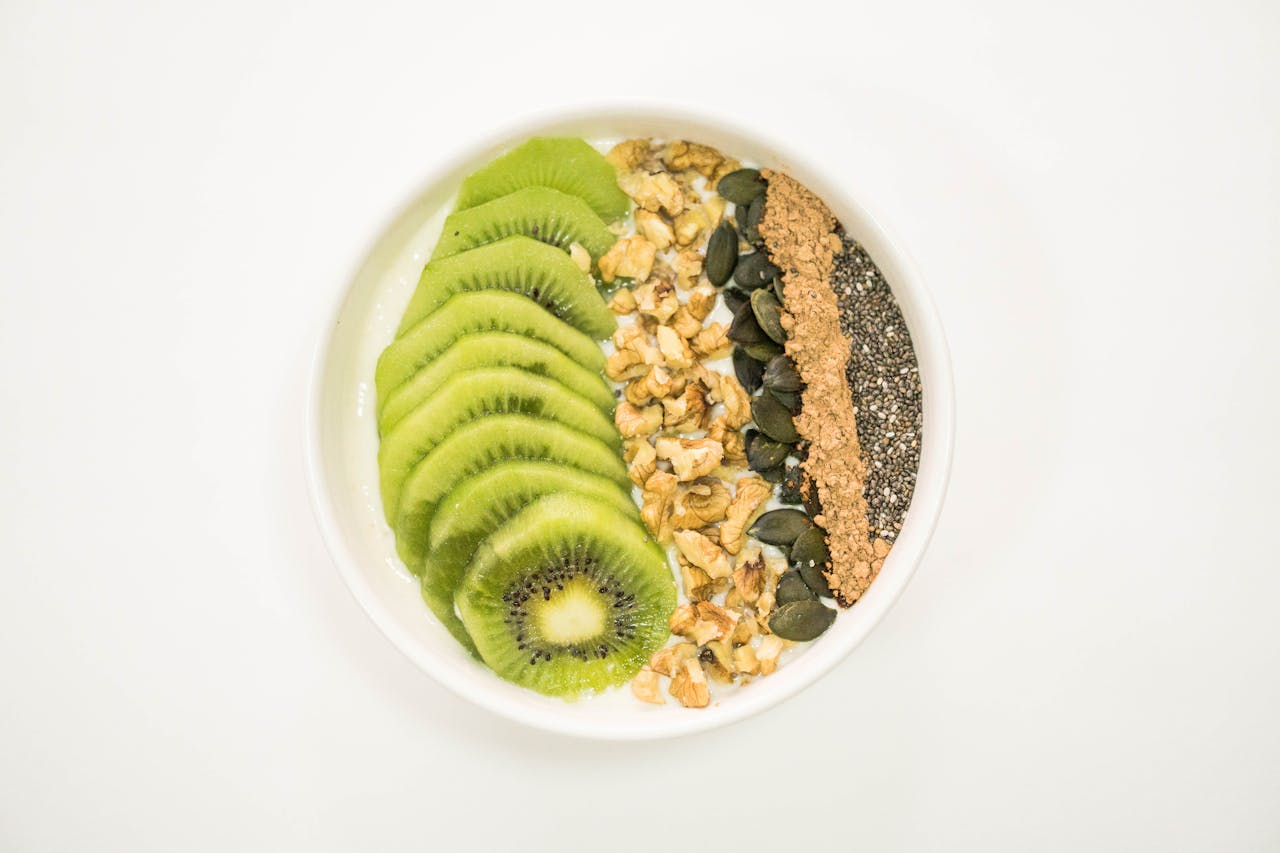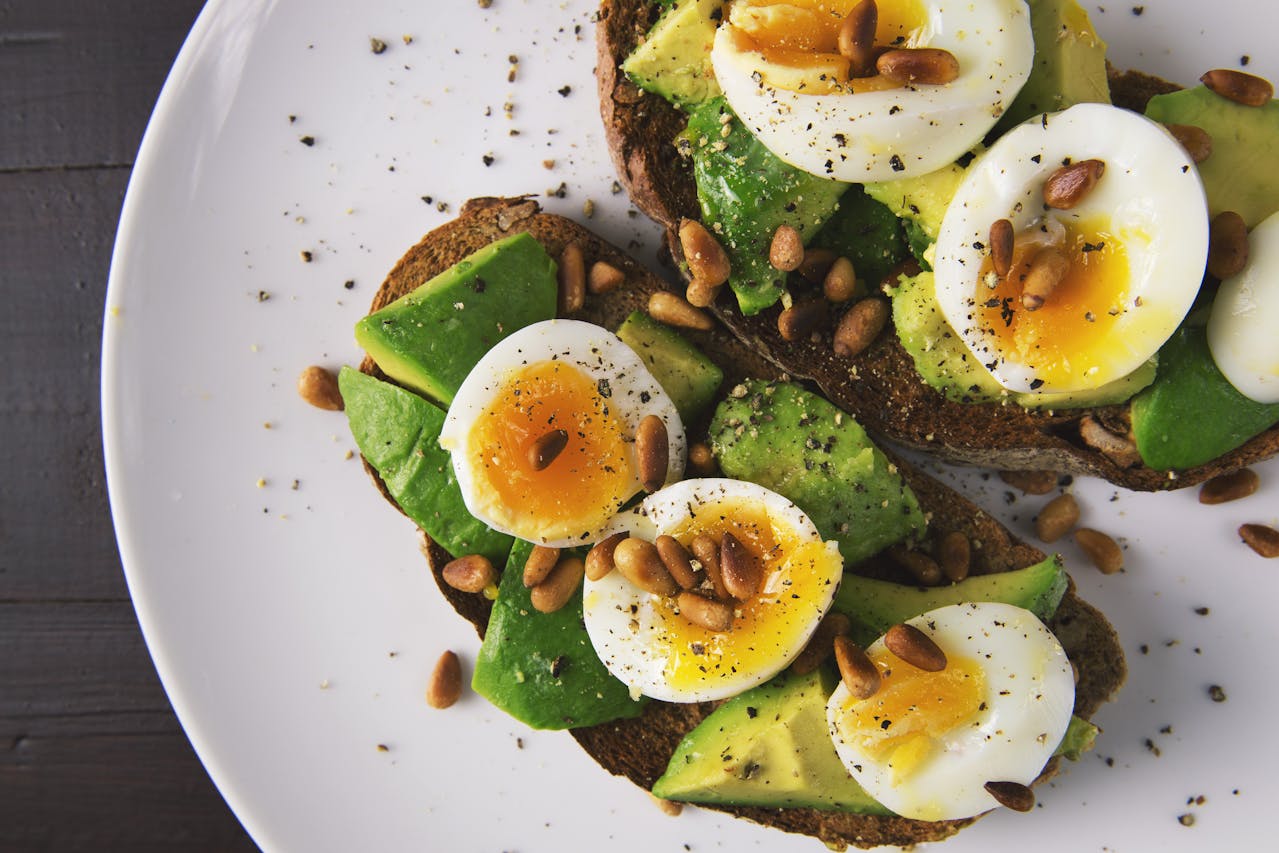Protein is the king of muscle building. Whether you hit the gym regularly or are just trying to stay active, knowing the best sources of protein—both animal and plant-based—can make a world of difference in your muscle-building journey. In this guide, we’ll explore the top protein sources, how they work in your body, and tips for optimizing your intake to achieve amazing results.
The Role of Protein for Muscle Building
After a workout, tiny tears form in your muscle fibers. Protein helps heal these tears, making your muscles stronger. That’s why protein is vital for everyone, from athletes to anyone looking to boost their strength and endurance.
How Does Protein Work in the Body?
When you consume protein, your body breaks it down into amino acids. These amino acids are the building blocks of muscle tissue, playing a crucial role in creating new muscle and helping your body recover after exercise.
What is Protein and Why is it Important for Muscle Gain?
Among the macronutrients—proteins, fats, and carbohydrates—protein stands out. It’s made up of amino acids, which come in two types: essential (which you need to get from food) and non-essential (which your body can produce).
- Functions of Amino Acids
Amino acids aren’t just for muscle building; they help produce hormones, support your immune system, and aid in various enzymatic functions.
- Daily Protein Intake for Muscle Growth
For most active individuals, the recommendation is to consume between 1.2 to 2.2 grams of protein per kilogram of body weight. Your specific needs may vary based on factors like age, gender, and workout intensity.
Animal Protein Sources
Animal proteins are often praised for being high-quality sources with complete amino acid profiles. Here are some of the best:
- Chicken Breast: The Powerhouse Protein
Chicken breast is a must-have for muscle gain. With about 31 grams of protein per 100 grams and very little fat, it’s perfect for building lean muscle.
- Turkey: A Lean Alternative
Turkey is another fantastic protein source. It’s low in fat and can be used in a variety of dishes, making it both tasty and nutritious.
- Eggs: The Complete Protein Source
Eggs pack about 6 grams of high-quality protein per serving and provide all nine essential amino acids, making them a complete protein source.
- Beef: Nutrient-Rich Protein
Beef offers high-quality protein and is rich in iron and B vitamins, which are essential for energy. Opt for lean cuts to maximize the benefits while minimizing fat intake.
- Fish: Omega-3s and Recovery
Fish, especially fatty types like salmon, are loaded with protein and omega-3 fatty acids, which help repair muscle tissue and reduce inflammation.
Vegetarian Sources of Protein
If you prefer plant-based options, there are plenty of delicious protein-rich choices available.
- Lentils: A Nutritious Powerhouse
Lentils boast about 18 grams of protein per cooked cup and are high in fiber, making them a filling and nutritious choice.
- Chickpeas: The Versatile Legume
Chickpeas offer 15 grams of protein per cooked cup and are packed with carbs, providing the energy you need for your workouts.
- Quinoa: The Complete Plant Protein
Quinoa is unique as it contains all nine essential amino acids and is gluten-free, making it a great option for those with dietary restrictions.
- Tofu and Tempeh: Soy Protein Benefits
Tofu and tempeh are excellent plant-based proteins, with tempeh containing around 31 grams of protein per cup. They’re versatile and can be used in a variety of recipes.
- Nuts and Seeds: Healthy Fats and Protein
Nuts and seeds offer a good source of protein along with healthy fats. While they’re calorie-dense, a small serving can contribute significantly to your daily intake.
Protein Supplements: Are They Worth It?
While whole foods should always be your primary source of protein, supplements can be a convenient option for those with busy lives.
- Whey Protein: Fast-Absorbing
Whey protein is popular due to its quick absorption, making it ideal for post-workout recovery.
- Casein Protein: Slow Digesting
Casein digests slowly, providing a steady release of amino acids, making it a great choice before bedtime.
- Plant-Based Protein Powders: Vegan Options
Many plant-based protein powders, such as pea or rice protein, are available for those following vegan or vegetarian diets.
- Choosing the Right Supplement
When selecting a protein supplement, consider your dietary preferences, protein goals, and any allergies you may have.
Mixing Protein Sources for Maximum Gains
Combining different protein sources can enhance recovery and overall intake.
- The Benefits of Mixing Animal and Plant Proteins
Using both animal and plant proteins gives you a broader range of amino acids, helping with muscle repair.
- Sample Meals: A Balanced Approach
Imagine a delicious meal of grilled chicken with quinoa or a chickpea salad topped with feta. These combinations provide a balanced intake of nutrients.
- Timing Your Protein Intake
Spreading out your protein intake throughout the day, especially around workouts, can help maximize muscle gains.
Common Misconceptions About Protein and Muscle Gain
Let’s clear up some myths surrounding protein consumption and muscle building.
- Myth: More Protein Means More Muscle
While protein is important, simply consuming more won’t lead to additional muscle growth. It’s all about finding the right balance.
- Myth: Only Animal Protein Builds Muscle
Many plant proteins can also support muscle growth. A varied diet can provide all the necessary amino acids.
- Myth: Supplements Are Essential for Gaining Muscle
Whole foods should always be your primary choice. Supplements are meant to complement a well-rounded diet, not replace it.
Conclusion
A balanced diet with a variety of animal and plant-based protein sources is crucial for maintaining muscle growth. Focus on quality choices and keep your intake balanced to support your fitness journey.








Leave a Reply